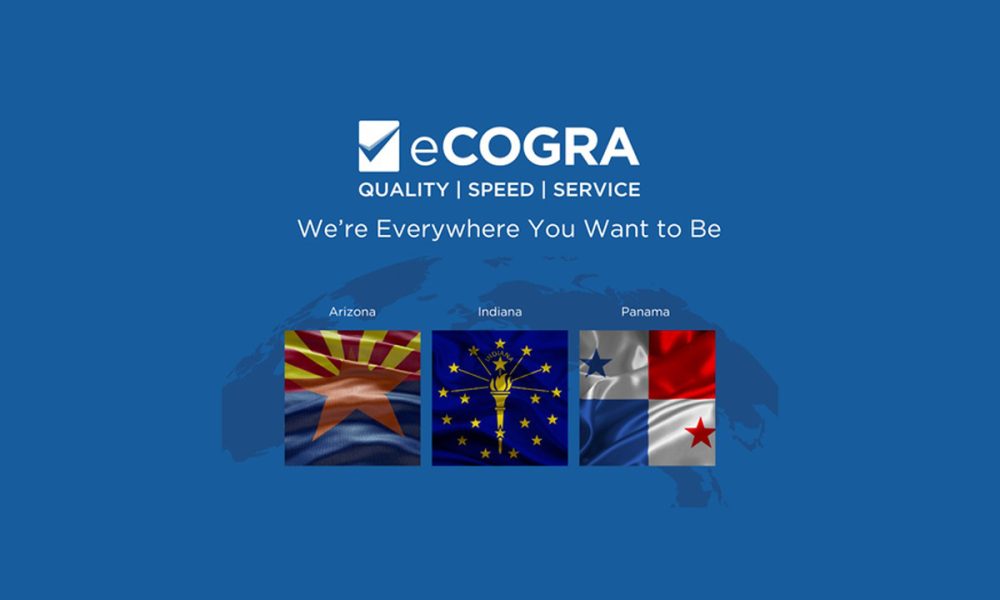iGaming Industry
How Gambling Regulation Across Europe Is on The Increase

Since exploding into our lives some twenty years ago, online gambling has gone through several transformations. Games have improved, the devices that we access them on have changed, and there are more services than ever before.
As is typical, legislation has lagged behind innovation in the industry here in Europe. We’re just starting to see more nations undertake the balancing act between ensuring they generate sufficient tax revenue, and providing a safe environment for their bettors. This process is made particularly difficult since levying too much tax will discourage investment in localities, as well as promote a move to less regulated, altogether dodgier iGaming venues from the punters themselves. Despite the divides between legislators, there are still good offers for specific counties across Europe.
Regulation is the Answer
Some nations in Europe have already made steps to encourage a more open market, and thus create opportunity for new online gambling ventures to open there. Portugal have just spent the last two years trying to tackle similar issues within their own gambling legislation. However, under their new laws, there is concern that their efforts have made offering services there commercially unviable for international companies. Aggressive taxation is at fault and responsible for strangling companies trying to setup shop there.
The likes of Bet365 and William Hill quickly left following changes in 2015 and have shown no willingness to return. The efforts by Portuguese legislators are clearly stifling innovation in the nation. The problem is exacerbated by a curious issue facing the nation too. The SCML, a company who have long held a monopoly on iGaming services, are actually registered as a charity organisation and are therefore eligible for a 50% tax cut. It’s no wonder established bookmakers want little to do with the market.
Cyprus is also undergoing great changes to its gambling industry. However, their efforts to prohibit unlicensed betting sites seem short-sighted. Rather than take away the incentive for players to use fully regulated services, they have simply outlawed those that have not obtained full licenses. Of course, countless examples abound of how prohibition of something is usually a spectacular failure and there seems little evidence to suggest that internet-savvy Cypriots will not simply circumvent legislation using online privacy tools and anonymous digital currencies. As it stands, there are over 2,400 websites that have been blacklisted. Meanwhile, services hoping to operate there legally are forced to jump through a series of legal loopholes. These include demonstrating a certain amount capital, licensing fees, and a 13% taxation.
Recently, the likes of Holland, Sweden, Poland, and Greece have begun to take tentative steps towards an overhaul of their legislation governing online gambling. Aggressive taxation policies in these nations have resulted in an exodus of international providers which has led to monopolies. Holland are currently attempting to break an entrenched, state-owned monopoly on gambling that has existed for many years.
They hope that the Remote Gaming Act of 2016 will encourage foreign investment and greater competition. However, the likelihood of success of such a measure is questionable. The huge 29% tax obligation of gross revenue is hardly going to encourage foreign providers to enter the market. However, there do exist plans to lower this rate to 25% by 2020. Yet, too little, too late still springs to mind.
Meanwhile, the major gambling hub that is Sweden are hoping legislation will help liberalise their market. There, a 20-year monopoly has existed. The Swedish efforts seem better placed to deliver results than the Dutch, however. Under an Act due to take effect by January 2019, they’ll be a unified tax levied on all gross gaming revenue. The rate is a more competitive 18%. Meanwhile, providers will also have to submit a licensing fee to operate on Swedish territory.
Curiously, Greece are moving in the opposite direction. Rather than reduce taxation to increase foreign investment, they’ve added 5% to the rates charged to providers. Thanks to the struggling economy in Greece, ministers are desperate to generate revenue by any means necessary. The European Commission have put pressure on the Greeks to open their markets, however, the increase in taxation of 2016 seems to be doing just the opposite. Greek gambling company, the OPAP, enjoy most custom at present, however there are plans to begin tackling this by 2020.
In Poland too renowned bookmakers like William Hill, Bet365, and Betfair have been forced to leave the market because offering their services there isn’t considered viable financially. In 2016, the legislative vowed to re-examine the laws in place with the aim of developing the market there. Little has been done since then, however.
Whilst large portions of Europe are trying to use legislation to further open markets, there remain those nations who continue to ignore European Commission recommendations altogether, or prefer a protectionist policy when it comes to gambling. Germany, for example, falls into the former category, with the likes of Finland and Norway being firmly in the latter. In Germany, some 71% of the total bets placed on sports take place on so-called grey markets.
Their highly liberalised gambling climate makes it so that any operator can offer their services there if they’re not based in Germany, and are licensed by a known European gambling authority. This leads to a situation where an estimated 1.5 billion euros in lost taxation revenue is leaving Germany every year. With most regions refusing to follow EU proposals, it seems to be more of an issue of Germans trying to make a point about their own sovereignty from EU rule than anything else.
Different again is the situation in Finland and Norway. These Scandinavian states opt for protectionist policies and in contrast to the Swedes are in no rush to tackle the system of monopolies in their gambling industries. This is largely because a significant portion of iGaming profits currently go directly to charitable organisations. Liberalising the economy there would likely see improvements in the player experience of online gambling but those in receipt of donations would certainly lose funding.
Interestingly, however, the law which makes foreign online betting sites illegal in these two states is rarely enforced at player level. This is often the case in such jurisdictions, and the result is huge streams of revenue flow out of the countries and into the coffers of providers who offer better odds, and more generous player perks.
Finally, there are some countries that seem to be making a much better job of regulating online gambling than the rest of Europe.
The United Kingdom, for example, enjoys one of the planet’s most vibrant betting environments. This has been cultured through a generally laissez-faire gambling policy since online gambling’s inception. Their stringent player protection rules but generous taxation policies provide the perfect environment for iGaming companies and sportsbooks to flourish. Competition is fierce in the UK, and many bookmakers find themselves head to head with one another to try and lure a public who are more than happy to have a punt on just about anything.
Clearly, there is anything but a unified gambling policy in Europe at present. Despite EU recommendations to liberalise markets and smash monopolies, the situation isn’t progressing quite as intended. Whilst some refute the centralised authority of EU leaders, others have attempted to generate greater revenue for themselves through aggressive taxation which has led to the industry effectively being strangled by legislation.
Of course, players need protection, and if foreign companies are making a killing offering gambling services, government are going to want a slice of that pie. However, as we’re seeing from the ad hoc array of legislation coming from European states, there is anything but consensus when it comes to finding the correct balance. Perhaps more countries should look at the example set by the likes of the United Kingdom who seem to be doing a relatively good job of nurturing their industry without endangering players or stifling innovation.…
The post How Gambling Regulation Across Europe Is on The Increase appeared first on Eastern European Gaming – News – Interviews – Legal Market Updates – Premium Reports – Events – Directory.
Source: EEGaming.
gaming operators
XT.COM Announces Listing of Zenex

XT.COM has announced the listing of ZNX (Zenex), an AI-driven payment infrastructure token designed to revolutionize the $107B+ iGaming industry. The ZNX/USDT trading pair will be available in the Innovation Zone (RWA), providing traders with access to a token that brings real-world business utility, enhanced fraud protection, and verifiable revenue-sharing mechanisms to online and land-based gaming operators.
Imagine a payment ecosystem where betting operators no longer need to freeze millions in capital reserves, where players enjoy seamless transactions across continents, and where token holders benefit directly from the growing gaming industry. That’s not a future promise – it’s what Zenex delivers today.
At its core, Zenex solves the gaming industry’s biggest challenge – the massive capital reserves required by traditional payment systems. Through the innovative blockchain and AI infrastructure, gaming operators who hold ZNX can reduce their reserve requirements by up to 30%, instantly freeing up capital for growth and operations.
The Zenex ecosystem combines multiple revenue streams that directly benefit ZNX token holders:
• Operational Betting Shops: The expanding network of profitable locations across Kenya generates consistent revenue, with systematic buybacks supporting token value.
• Advanced Payment Infrastructure: Already processing millions in monthly transactions, the payment solution helps operators reduce costs while improving transaction efficiency.
• White-Label Gaming Solutions: The proprietary platform powers multiple online casinos and betting operations, generating steady transaction volume.
• Innovative Mini-Games Platform: A suite of engaging games drives player engagement and creates additional revenue streams.
• Premium Card Solution: The upcoming Zenex Card will revolutionize how players access and manage their funds across 150+ countries.
The Zenex Advantage:
• Systematic Buybacks: A portion of all gaming revenue is used to buy back ZNX tokens, creating sustainable price support.
• Token Utility: Operators holding ZNX benefit from reduced reserve requirements, creating natural demand from the $107 billion iGaming industry.
• Strategic Lock-ups: Smart contract-based locking mechanisms ensure long-term price stability.
• Community Governance: Token holders participate in key decisions about platform development and charity initiatives.
The post XT.COM Announces Listing of Zenex appeared first on Gaming and Gambling Industry in the Americas.
Alejandro Navarro
Betski Secures $345,000 in Pre-Seed Funding for First-ever Tokenized Casino Ownership Platform

Betski is set to launch its online casino ownership platform in Q1 of 2025, enabling users to earn casino profits through digital tokens. The system will allow anyone to receive a share of casino earnings without managing casino operations, marking a new chapter in the multi-billion-dollar iGaming industry. Supported by a $345,000 pre-seed funding round, the platform aims to democratize access to casino earnings and reshape the multi-billion-dollar gaming industry.
Opening Casino Ownership to Everyone
The platform’s tokenization system reshapes traditional casino business rules through an automatic profit-sharing program. Token holders receive a percentage of every bet placed on the platform.
This system eliminates steep entry costs, such as operational expenses, licensing fees, and administrative management. Users can start earning returns without previous casino experience or large capital investments.
“A small group have exclusively enjoyed casino industry profits until now. Our platform opens these earnings to everyone through our tokenized profit-sharing system, turning users into online casino owners,” said Alejandro Navarro, founder and CEO of Betski.
Direct Profit-Sharing Through Tokens
Through a verified digital system, the ownership program distributes Gross Gaming Revenue (GGR) among token holders. Investors have recognized this potential, contributing $345,000 in pre-seed funding that combines gaming entertainment with digital asset ownership. The platform maintains strict security protocols and automated distribution systems for reliable profit sharing.
“The platform distributes real money to token holders from every bet placed by players. This creates a steady income stream for online casino owners – something the traditional casino structure has never offered,” said Navarro.
Global Growth of Online Casino Ownership
The platform has attracted 2400 active Discord members and over 20,000 followers on X (formerly Twitter). These early adopters are expected to participate in test runs of the profit-sharing system once it goes live. Over the next 24 months, the platform will roll out first in Latin America, followed by expansion into European and select Asian markets.
Betski offers casino games, live casino experiences, eSports betting, global lotteries, fantasy sports, and traditional sportsbooks. This variety creates multiple revenue streams for online casino owners. Players can access all gaming options through a single interface, which streamlines the betting experience and maximizes potential returns for token holders.
The team has partnered with major payment processors and marketing agencies to support the platform’s global expansion. These collaborations will facilitate smooth transactions and user acquisition across different regions. The platform meets all regulatory requirements in its target markets, certifying long-term stability for token holders.
New Opportunities for Investment
Following the successful pre-seed round, Betski is now opening its seed funding round to welcome additional participants into its casino ownership platform. This investment opportunity enables individuals and entities to join the platform’s growth journey ahead of its official launch in Q1 2025.
Bradley Khoury
eCOGRA Approved to Operate in Arizona, Indiana and Panama

eCOGRA, a leading international authority in Testing, Inspection and Certification services for the iGaming industry, has secured new regulatory approvals across three key jurisdictions: Arizona, Indiana and Panama. With these developments, eCOGRA strengthens its position in the U.S. and Latin American markets, offering excellence in compliance through their Quality, Speed, and Service promise.
This strategic expansion allows eCOGRA to conduct independent compliance audits and certification services in each region, addressing the growing demand for rigorous regulatory oversight in the fast-evolving global iGaming industry.
Securing approval in Arizona, where eCOGRA has now been licensed as an Event Wagering Ancillary Supplier, enables the International Testing Laboratory (ITL) to audit event wagering licensees in line with Arizona’s expanding regulatory landscape. Indiana, which introduced online sports betting in September 2019, has authorised eCOGRA to perform regulatory compliance audits, providing licensed operators with crucial assurance in meeting the state’s high standards.
In Panama, the Board of Gaming Control officially recognised eCOGRA as an Authorised Entity for Compliance Certification, specifically for slot machines and gaming software. This endorsement reinforces eCOGRA’s role as a trusted partner for operators seeking to meet stringent regulatory requirements in Latin America’s emerging iGaming sector.
“Our recent approvals in Indiana, Arizona, and Panama underline our dedication to continually expand our offering, to support our growing portfolio of clients with their global growth plans. We are committed to ensuring that we bring the same quality, speed and service that marks us out to both our clients and regulators in these dynamic markets,” said Will Shuckburgh, Group CEO of eCOGRA.
Bradley Khoury, Chief Technology Officer at eCOGRA, said: “Securing licensure as an Event Wagering Ancillary Supplier in Arizona and an Authorised Entity in Panama underscores our dedication to supporting responsible and sustainable iGaming operations. We are committed to driving trust and accountability within the industry by providing compliance solutions that uphold the highest standards.”
-

 gaming3 years ago
gaming3 years agoODIN by 4Players: Immersive, state-of-the-art in-game audio launches into the next generation of gaming
-
EEG iGaming Directory9 years ago
iSoftBet continues to grow with new release Forest Mania
-
News8 years ago
Softbroke collaborates with Asia Live Tech for the expansion of the service line in the igaming market
-
News7 years ago
Super Bowl LIII: NFL Fans Can Bet on the #1 Sportsbook Review Site Betting-Super-Bowl.com, Providing Free Unbiased and Trusted News, Picks and Predictions
-
iGaming Industry8 years ago
Rick Meitzler appointed to the Indian Gaming Magazine Advisory Board for 2018
-
News7 years ago
REVEALED: Top eSports players set to earn $3.2 million in 2019
-
iGaming Industry8 years ago
French Senator raises Loot Boxes to France’s Gambling Regulator
-
News7 years ago
Exclusive Interview with Miklos Handa (Founder of the email marketing solutions, “MailMike.net”), speaker at Vienna International Gaming Expo 2018

















